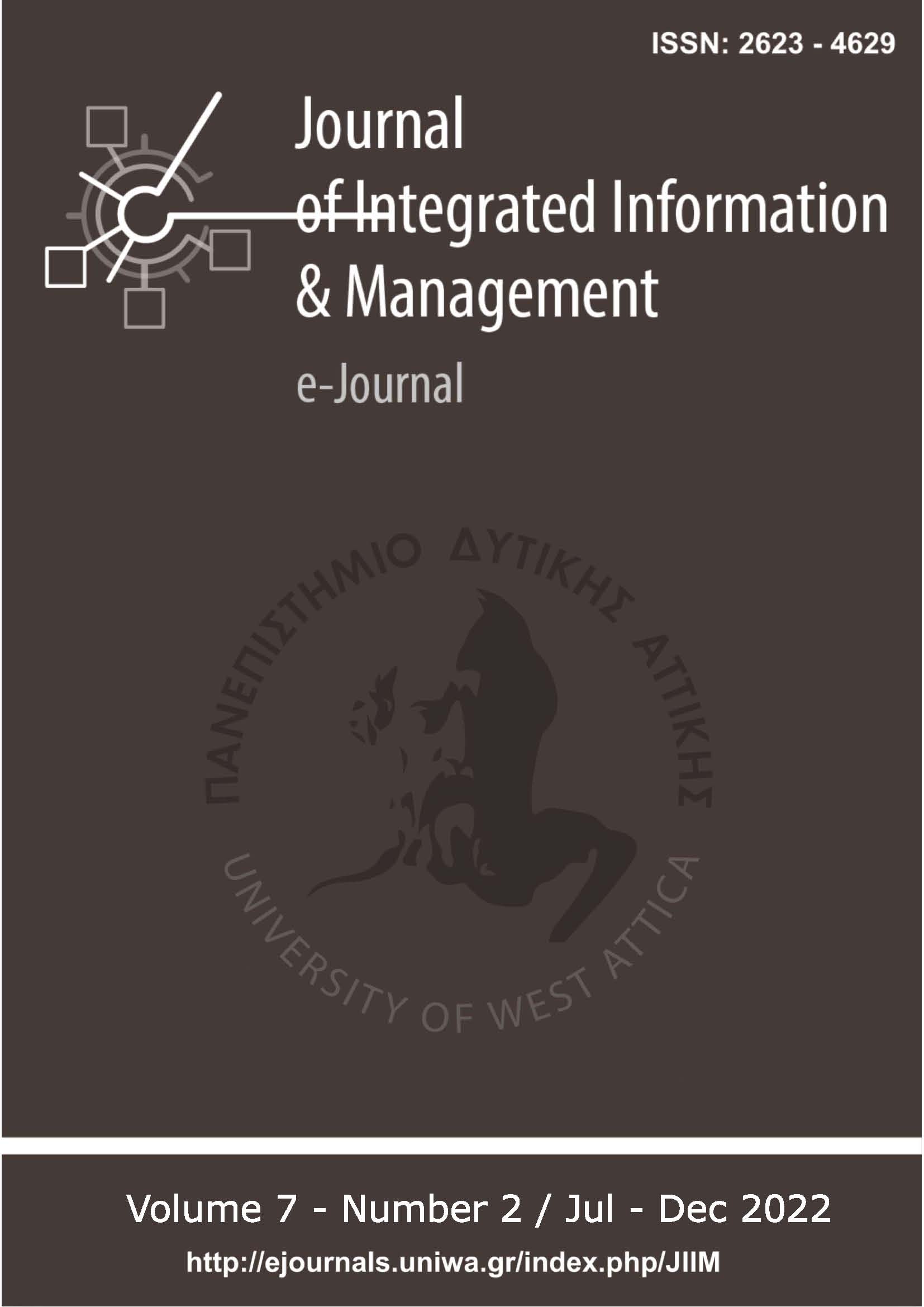Editorial

Abstract
The first paper investigates bibliotherapy's nature and characteristics, as they have been formulated in experts' opinions on the specific topic. This research sets a general framework and examines the relationship between bibliotherapy and librarians. Participants believe that books can be used to treat psychological problems and difficulties and improve the quality of life of individuals. Thus, bibliotherapy can strengthen libraries’ position in modern societies and offer new, relevant services. The second paper concerns the architecture of an E-government platform for Educational and Research Management (e-EDURES) in Higher Education Institutions. An integrated strategic planning and decision support system (DSS) is included at the center of the architecture for facilitating the decisions and the design of future actions, enabled by data mining and visual analytics techniques. The platform incorporates interactive visual interfaces to support Knowledge Discovery from Data Visualization, providing the user with enhanced assistance throughout the decision-making process. The following paper discusses the methods and tools used to deliver a source mapping for sustainable development literacy (SDL), a relevant Delphi Study, an SDL Curriculum and an e-Learning Module in the EDUCABILITY Virtual Learning Environment. One of the major thrusts of Education for Sustainable Development (ESD) is to reorient education at all levels to address sustainability issues, meaning to rethink and revise education from nursery schools through university to include principles, skills, knowledge, and values related to sustainability. Regarding librarians, it is vital to their role to raise users' SDL levels to help achieve the Agenda 2030 goals.
Article Details
- How to Cite
-
Kouis, D. (2024). Editorial. Journal of Integrated Information Management, 7(2), 5. Retrieved from https://ejournals.epublishing.ekt.gr/index.php/jiim/article/view/37904
- Section
- Editorial

This work is licensed under a Creative Commons Attribution-NonCommercial 4.0 International License.
Copyright Notice
Authors who publish with JIIM agree to the following terms:
- Authors retain copyright and grant the journal right of first publication with the work simultaneously licensed under a Creative Commons Attribution Non-Commercial License that allows others to share the work with:
- An acknowledgment of the work's authorship and initial publication in this journal.
- Authors are permitted and encouraged to post their work online (preferably in institutional repositories or on their website) prior to and during the submission process, as it can lead to productive exchanges, as well as earlier and greater citation of published work.





